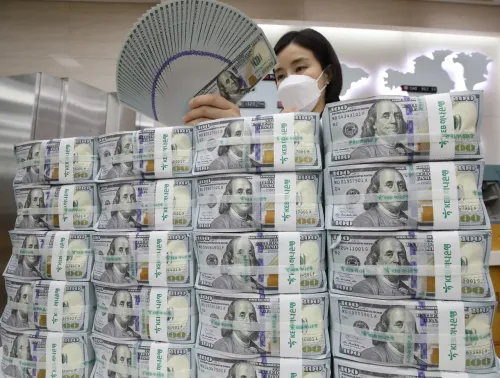Will Seoul's New Trade Minister Succeed in Washington's Tariff Negotiations?

Synopsis
Key Takeaways
- Yeo Han-koo is set to negotiate tariffs in Washington next week.
- Key discussion areas include economic security and investment cooperation.
- The negotiations aim for a comprehensive agreement by July 8.
- Concerns about South Korea's trade surplus with the U.S. are prominent.
- Changes in chipmaking waivers could impact tech companies significantly.
Seoul, June 21 (NationPress) The newly appointed chief trade negotiator of South Korea is set to travel to the United States next week for crucial tariff discussions, as the July 8 deadline approaches, according to his agency's announcement on Saturday.
Yeo Han-koo will arrive in Washington on Sunday to engage in negotiations with U.S. Trade Representative (USTR) chief Jamieson Greer and other high-ranking officials, as reported by the Ministry of Trade, via Yonhap news agency.
Yeo took office as the trade minister under the Lee Jae Myung administration on June 10.
During discussions in May, Seoul and Washington agreed to concentrate on four key areas: tariff and non-tariff measures, economic security, investment cooperation, and currency policies.
Yeo has previously stated his intention to develop strategies that lead to a mutually beneficial agreement for both nations, emphasizing that the upcoming negotiations are expected to be intense.
Both South Korea and the U.S. aim to finalize a comprehensive deal that addresses tariffs, non-tariff measures, economic collaboration, and other trade matters before July 8 — the date when the Trump administration's suspension of reciprocal tariffs, including a 25% duty on South Korea, will expire.
The Trump administration has raised concerns regarding South Korea's significant trade surplus with the U.S. and various non-tariff barriers.
Earlier this year, the USTR published an annual report outlining foreign trade barriers, highlighting numerous non-tariff measures from Korea, including its import ban on American beef from cattle over 30 months old, emission regulations on imported vehicles, and restrictions on the international transfer of high-precision mapping data.
Additionally, a Trump administration official has informed South Korean tech leaders, Samsung Electronics Co. and SK hynix Inc., about the intent to revoke waivers that permit them to transport U.S. chipmaking equipment to their Chinese facilities without needing individual licenses.
Jeffrey Kessler, who leads the export controls unit at the Commerce Department, conveyed this message to the two companies and Taiwan Semiconductor Manufacturing Co. this week, as reported by The Wall Street Journal, citing sources familiar with the situation.










